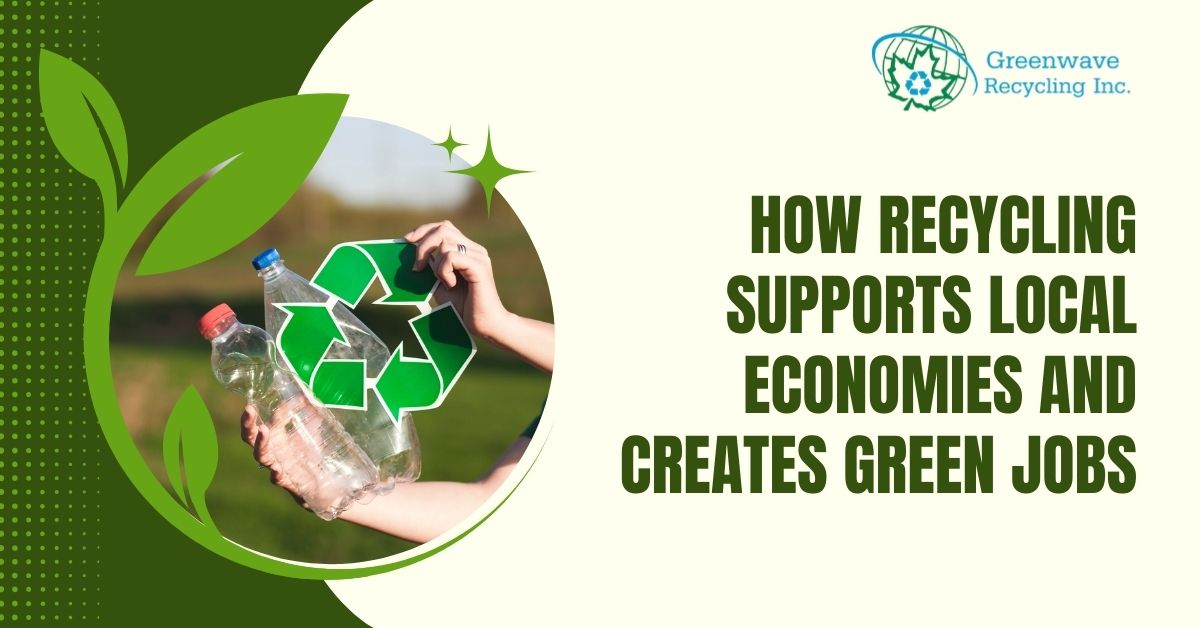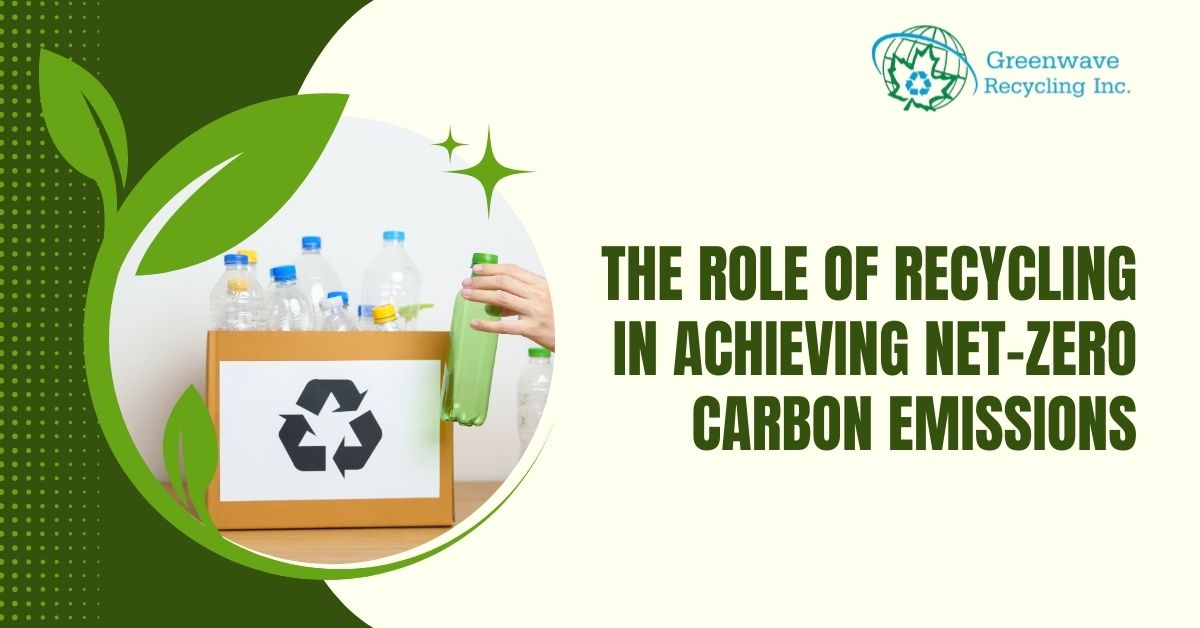As the world shifts toward sustainability, achieving net-zero carbon emissions has become a global priority…

Recycling plays a crucial role in both environmental sustainability and economic growth. By diverting waste from landfills and repurposing materials, recycling creates job opportunities, strengthens local economies, and fosters sustainable business practices. In this blog, we will explore how recycling contributes to economic development and the creation of green jobs.
The Economic Impact of Recycling
Recycling is more than just an environmental initiative—it’s a significant driver of economic activity. According to studies, the recycling industry generates billions of dollars in revenue each year, supporting local businesses and industries. Unlike traditional waste disposal methods, which involve sending materials to landfills or incinerators, recycling adds value by transforming waste into reusable resources.
Job Creation Through Recycling
One of the most significant advantages of a strong recycling infrastructure is job creation. The recycling industry supports employment in various sectors, including:
- Collection and Sorting – Recycling facilities hire workers to collect, transport, and sort recyclable materials, ensuring they are processed efficiently.
- Processing and Manufacturing – Once sorted, recyclables are cleaned, processed, and converted into raw materials, which are then used by manufacturers to create new products.
- Innovation and Research – As demand for sustainable solutions grows, research institutions and green tech companies are developing innovative recycling technologies, leading to new employment opportunities.
For every 10,000 tons of waste recycled, an estimated 25 jobs are created, compared to only 6 jobs in landfilling. This demonstrates how a shift toward recycling can significantly boost employment rates.
Boosting Local Economies Through Recycling
Recycling benefits local economies in several ways:
- Supporting Local Businesses: Many small and medium-sized businesses rely on recycled materials for production, reducing costs and increasing sustainability.
- Encouraging Investments: Cities and regions with strong recycling programs attract investments from eco-conscious companies looking to support sustainable business models.
- Reducing Municipal Costs: Recycling helps cities save money on landfill maintenance and waste disposal, allowing funds to be redirected toward community projects and infrastructure.
The Future of Green Jobs in Recycling
As governments and organizations push for stricter environmental regulations, the demand for green jobs in recycling is expected to rise. The transition to a circular economy, where waste is continuously repurposed, will require skilled workers in fields like material science, waste management, and sustainable manufacturing.
How You Can Support Green Jobs and Local Economies
- Recycle Properly: Learn about local recycling guidelines to ensure materials are correctly sorted.
- Support Businesses That Use Recycled Materials: Choose products made from sustainable resources.
- Advocate for Recycling Programs: Encourage businesses and local governments to expand recycling initiatives.
Conclusion
Recycling is not just about protecting the environment—it is a powerful economic tool that supports local economies, creates jobs, and drives innovation. By prioritizing recycling efforts, businesses and individuals can contribute to a greener planet while strengthening their communities.

